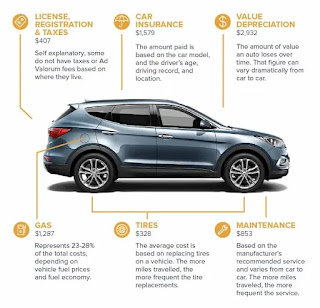How do electric cars compare to traditional gasoline-powered cars?
Energy Source,
Electric Vehicles:
Electric vehicles, as the name proposes, depend on power as their essential wellspring of energy. They are fueled by lithium-particle batteries, which store and give electrical energy to the electric engine. This makes them significantly more harmless to the ecosystem, as they produce zero tailpipe emanations.
Fuel Controlled Vehicles:
Customary gas-controlled vehicles, then again, utilize gas-powered motors that consume gas or diesel fuel to produce power. This burning system discharges destructive emanations into the climate, adding to air contamination and environmental change.
Execution,
Electric Vehicles:
Electric vehicles are known for their moment force, giving fast speed increase and a smooth driving encounter. They are quiet, produce negligible vibrations, and proposition a calmer ride. The regenerative stopping mechanism in electric vehicles likewise adds to their productivity and expands the life expectancy of the brakes.
Fuel Controlled Vehicles:
Fuel-controlled vehicles have been the norm for a long time and arrive in many models with fluctuating degrees of execution. They frequently require more support because of the intricacy of their gas-powered motors and transmission frameworks.
Range,
Electric Vehicles:
One of the normal worries with electric vehicles is their reach, or how far they can go on a solitary charge. Be that as it may, headways in battery innovation have altogether worked on the scope of electric vehicles (EVs). Numerous cutting-edge EVs can go north of 200 miles on a solitary charge, with some top-of-the-line models surpassing 300 miles.
Gas-Fueled Vehicles:
Gas vehicles enjoy the benefit of a deeply grounded refueling framework, offering more noteworthy adaptability in really long travel. While electric charging stations are turning out to be more predominant, gas vehicles give longer reach choices.
Working Expenses,
Electric Vehicles:
Electric vehicles enjoy an unmistakable benefit about working expenses. Power is for the most part less expensive than gas, and the expense per mile for an electric vehicle is fundamentally lower. Moreover, electric vehicles have fewer moving parts, which diminishes upkeep and fixing costs.
Fuel Controlled Vehicles:
Fuel-controlled vehicles require normal oil changes, more incessant support, and possibly expensive fixes. Fuel expenses can change contingent upon gas costs, making working costs less unsurprising.
Ecological Effect,
Electric Vehicles:
Electric vehicles are promoted as an all the more harmless to the ecosystem choice because of their zero tailpipe emanations. Be that as it may, their natural effect relies upon the wellspring of the power used to charge them. If the power is created from sustainable sources, the general carbon impression of electric vehicles is essentially lower.
Fuel Controlled Vehicles:
Fuel-controlled vehicles produce ozone-harming substances and different toxins straightforwardly into the climate. They add to air contamination and environmental change, making them less eco-accommodating compared with electric vehicles.
Conclusion:
The correlation between electric vehicles and customary gas-controlled vehicles is certainly not a one-size-fits-all situation. It relies upon individual inclinations, driving necessities, and the accessibility of the charging framework. Electric vehicles are picking up speed, principally because of their natural advantages and lower working expenses. Notwithstanding,
gas-controlled vehicles hold an edge as far as reach and a deeply grounded refueling organization.
Eventually, the decision between electric and gas-controlled vehicles depends on your needs, whether it's decreasing your carbon impression, saving money on working expenses, or partaking in the thunder of a burning motor. As innovation keeps on developing, all things considered, the car business will proceed with a shift towards more practical and effective transportation choices.


















0 Comments